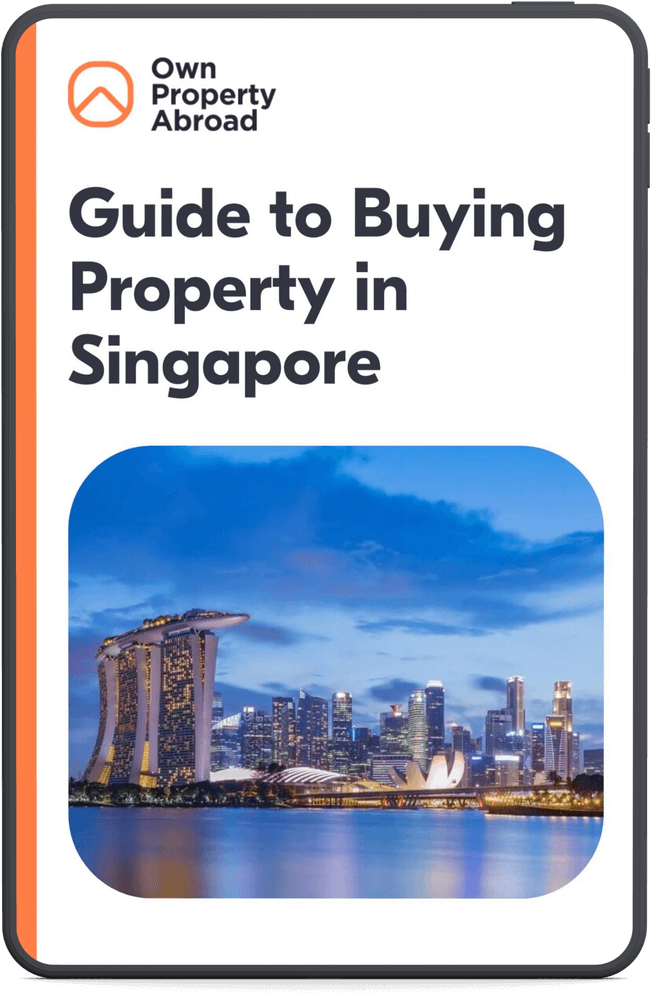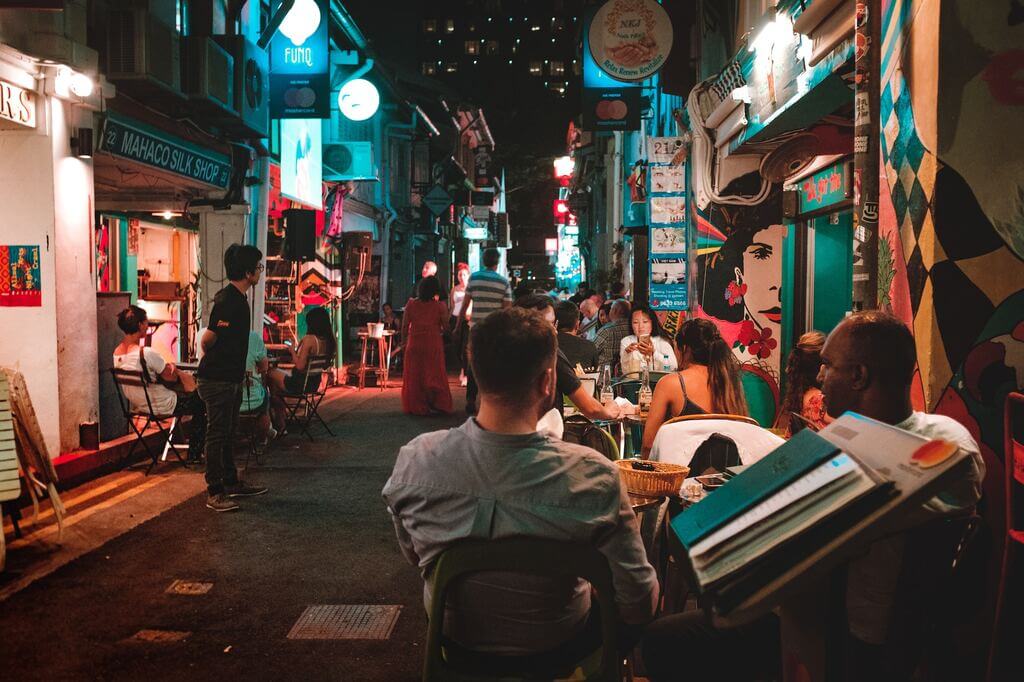Visa and residency options
Foreigners who want to immigrate to Singapore need a visa as a requirement. There are many visa options for expats in Singapore, including:
- Employment Pass (EP): The Employment Pass (EP) is a work visa issued by Singapore’s Ministry of Manpower (MOM) for skilled foreign professionals, managers, executives, and specialists who aim to contribute to Singapore’s dynamic economy. One must have a job offer and acceptable qualifications to move to Singapore with an EP. With a typical validity of 1-2 years (renewable for up to 3 years), the EP enables multiple entries into Singapore without needing an entry visa.
- Entrepreneur Pass (EntrePass): Foreigners can also immigrate to Singapore through an Entrepreneur Pass visa. The EntrePass is a work visa for foreign entrepreneurs who want to start innovative businesses in Singapore. The pass is valid for one year and renewable for longer terms. Applicants need a strong business plan, creative ideas, expertise, or backing from venture capitalists or research partners to qualify.
- Personalized Employment Pass (PEP): The Personalised Employment Pass (PEP) is a flexible, self-sponsored work visa issued by Singapore’s Ministry of Manpower for high-income foreign professionals earning at least SGD 22,500 ($16,898) per month who want to move to Singapore. Unlike the Employment Pass (EP), it is not tied to any employer, allowing holders to switch jobs without reapplying for a new pass, though they cannot remain unemployed for over six months.
- S Pass: Foreigners who want to move to Singapore may obtain an S Pass, a budget-friendly work visa designed for mid-level skilled foreign technicians in industries like chemicals, electronics, aerospace, marine, and pharmaceuticals.
- Dependant’s Pass (DP): The Dependant’s Pass (DP) in Singapore allows work pass holders, such as those with an Employment Pass (EP) or EntrePass, to bring their legally married spouses and unmarried children under 21 to move to Singapore. Sponsored by the employer of the primary work pass holder, the DP aligns its validity with the main work pass and can be renewed six months before expiration.
- Long-Term Visit Pass (LTVP): The Long-Term Visit Pass (LTVP) allows family members of Employment Pass or S Pass holders to stay in Singapore for an extended period. Eligible applicants include common-law spouses, stepchildren, and disabled children.
Permanent residency in Singapore
Foreigners who do not know how to move to Singapore can apply for Singapore Permanent Residency (SPR) by obtaining an Entry Permit, with eligibility extended to spouses and unmarried children (under 21), aged parents of SCs, work pass holders, and investors or entrepreneurs. Singapore residency for foreigners provides benefits, including access to the Central Provident Fund (CPF), housing advantages, healthcare, and eventual eligibility for citizenship. Applicants can pursue PR through schemes like the Professional, Technical, and Skilled Worker Scheme (PTS), the Global Investor Programme (GIP), or the Foreign Artistic Talent Scheme (ForArts). Singapore residency for foreigners is processed online by the Immigration & Checkpoints Authority (ICA) and requires fulfilling specific criteria, including a stable professional or economic contribution.
Finding accommodation in Singapore
Accommodation options are available for living in Singapore as an expat. Foreigners can buy real estate properties, making it easier for them to move to Singapore. However, there are limitations based on property type, such as:
- HDB flats: Foreigners cannot purchase government-subsidized HDB flats.
- Resale HDB flats: Foreigners cannot generally buy resale HDB flats, as they are sold by previous owners who meet the Minimum Occupation Period (MOP).
- Private apartments and condominiums: Foreigners can buy as many private apartments or condos as they wish with no limit.
- Executive condominiums: Permanent residents (PRs) can buy these after 5 years, while foreigners can only buy them after 10 years.
- Landed residential properties: Foreigners need government approval to buy landed properties like terrace houses or bungalows. Approval depends on the foreigner’s economic contribution to Singapore.
Renting vs. buying property
In Singapore, buying or renting a home depends on several personal factors, including financial readiness, lifestyle, and long-term plans. Buying a home is often seen as a long-term investment, offering the benefits of building equity, capital appreciation, and personalizing the property. On the other hand, renting offers flexibility, lower upfront costs, and predictable expenses without the responsibility of property maintenance or taxes.
As of 2025, the average price of a home in Singapore is SGD 4.19 million ($3.15 million), with HDB flats being the most affordable at an average cost of SGD 633,167 ($475,508). Condominiums are considerably more expensive, averaging SGD 2.57 million ($1.93 million) per unit, more than four times the cost of an HDB flat. Landed properties are the priciest, with an average price of SGD 9.39 million ($7.05 million), though they tend to be the largest homes, averaging 405 square meters.
On the other hand, the cost of renting an apartment when you move to Singapore varies depending on location and size. A one-bedroom apartment in the city center averages SGD 3,612.86 ($2,713), with prices ranging from SGD 2,200 ($1,652) to SGD 5,000 ($3,755). Outside the city center, a one-bedroom apartment typically costs SGD 2,644.81 ($1,986), with rents between SGD 1,800 ($1,352) and SGD 3,500 ($2,629). The average rent for a three-bedroom apartment in the city center is SGD 7,305.77 ($5,487), with prices ranging from SGD 4,800 ($3,605) to SGD 11,000 ($8,261), while a three-bedroom apartment outside the center averages SGD 5,017.71 ($3,768).
Valuable insights and practical advice, distilled from years of expertise and real-world experience.


Popular neighborhoods for foreigners
Foreigners can choose different neighborhoods when they move to Singapore. This country offers diverse locations for the best neighborhoods for expats in Singapore, including:
- Orchard Road: Known as Singapore’s most expensive and iconic district, foreigners who move to Singapore reside in Orchard Road because it boasts luxury high-rise apartments near world-class shopping malls like ION Orchard and Paragon. Residents enjoy excellent public transport links, making it a prime choice for those who want to live in the city’s heart.
- Tiong Bahru: Tiong Bahru offers a unique living experience for foreigners who want to move to Singapore, with its signature art deco architecture and vibrant café culture. Its central location provides easy access to key areas in Singapore while maintaining a quieter, more residential feel.
- East Coast: Famous for its coastal lifestyle, it offers residents a relaxed atmosphere and easy access to East Coast Park, a popular spot for cycling, jogging, and water sports. The area features a mix of modern condos, landed properties, and traditional homes, with abundant local seafood restaurants and casual dining options suitable for foreigners who move to Singapore to experience Singaporean cuisine.
- Sentosa: Known as the “State of Fun,” Sentosa offers a luxury resort lifestyle with oceanfront properties, golf courses, and various leisure activities. It’s an exclusive island living experience with private villas and high-end condos, best for foreigners who want to move to Singapore for a luxurious living experience.
- Seletar / Yishun / Yio Chu Kang: These northern residential areas are more affordable than other parts of Singapore and are known for being the best neighborhoods for expats in Singapore because of their tranquil, suburban feel.
Cost of living
Singapore is a more expensive destination among Southeast Asian countries, with high costs attributed to land scarcity, reliance on imports, and property prices. Foreigners who need to know how to move to Singapore must account for the high cost of living. The cost of living index of Southeast Asian countries ranks Singapore as having the highest cost of living at 85.9, followed by Brunei and Cambodia at 55.2 and 44.5, respectively. The gap between the cost of living in Singapore and other countries is striking. Below is a comprehensive table of the cost of living in Singapore for your reference.
| Category | Monthly average cost |
|---|---|
| Restaurants | SGD 114 ($85.61) |
| Markets | SGD 38.81 ($29.15) |
| Transportation | SGD 124.89 ($93.79) |
| Utilities | SGD 254.97 ($191) |
| Housing | SGD 13,563.44 ($10,186) |
| Childcare (Schooling) | SGD 37,846.23 ($28,423) |
| Clothing | SGD 147.06 ($110) |
| Leisure | SGD 161.13 ($121) |
| Salary and finance (after tax) | SGD 5,715 ($4,292) |
Healthcare in Singapore
Singapore’s healthcare system is highly regarded globally for its efficiency and outcomes. Singapore ranks 4th in the list of cities based on the Health Care Index in Southeast Asia, scoring 71.8. Although healthcare is not entirely free, hospitalizations, outpatient services, and long-term care at public facilities are heavily subsidized, with discounts of up to 80% in some cases. However, government subsidies do not cover healthcare in Singapore for expats, and foreigners must rely on comprehensive health insurance plans to cover medical costs. On average, a 45-year-old expat in Singapore pays around SGD 3,200 ($2,403) annually for health insurance. A 25-year-old typically pays 40% less, while premiums increase significantly after age 65. Foreigners planning to move to Singapore must account for insurance costs. Consequently, the lack of access to subsidized healthcare in Singapore for expats means that foreigners are exempt from contributing to the Central Provident Fund (CPF).
Working in Singapore
Foreigners who want to know how to move to Singapore can do so for work purposes. However, they must obtain the necessary work permits. The city’s thriving economy offers opportunities in diverse industries to foreigners who immigrate to Singapore for work, particularly technology, which is set to grow with advancements in AI, automation, and sustainability. While there’s no minimum wage in Singapore, working in Singapore as a foreigner generates an average annual salary of around SGD 70,000 ($52,570), with variations depending on industry, experience, and qualifications. High-demand sectors like banking, IT, construction, and healthcare often see steady salary growth, making Singapore an attractive destination for professionals worldwide.
Working in Singapore as a foreigner requires you first to secure a job offer and identify the appropriate employment pass for your role. Singapore offers various work passes tailored to different categories of foreign workers: professionals can apply for Employment Passes (minimum salary $5,000) or Personalised Employment Passes for high earners; entrepreneurs may seek an EntrePass for innovative ventures; skilled and semi-skilled workers can use S Passes ($3,150 minimum salary) or work permits for specific sectors like construction or domestic work; students and trainees can opt for Training Passes or Work Holiday Passes for short-term work opportunities.
Daily life and culture
Singapore’s culture is a vibrant blend of Malay, Chinese, Indian, and Eurasian influences, shaped by its history as a key trading hub. While English is the lingua franca, Mandarin, Malay, and Tamil are official languages. Life in Singapore is fast-paced, safe, and convenient, with excellent public services, a diverse culture, and a strong emphasis on cleanliness and order. Foreigners moving to Singapore should be accustomed to the practices of Singaporean people. Cleanliness is deeply ingrained in Singaporean society. Your life in Singapore will strictly observe local practices like removing your shoes before entering homes or places of worship.
While Singapore is known for its advanced technology, cash is still widely used in smaller shops, hawker centers, and traditional eateries. Moreover, foreigners who want to move to Singapore should know that smoking is restricted to designated areas, and cigarette littering is strictly penalized. Alcohol consumption is regulated, with public drinking banned from 10:30 p.m. to 7:00 a.m. in most places and stricter rules in designated zones like Little India and Geylang.
Taxes in Singapore
The employment income of non-residents in Singapore is taxed at the flat rate of 15% or the progressive resident tax rate, whichever is the higher tax amount. Moreover, foreign buyers must account for the Buyer’s Stamp Duty (BSD) when purchasing real estate, which is calculated based on the higher of the property’s purchase price or market value. Additionally, the Additional Buyer’s Stamp Duty (ABSD) has been revised as of April 27, 2023, with foreigners now subject to a 60% ABSD, varying rates depending on the number of properties purchased.
Valuable insights and practical advice, distilled from years of expertise and real-world experience.


Frequently Asked Questions (FAQs)
What visa options do foreigners have when moving to Singapore?
Foreigners planning to move to Singapore can apply for various visa options, including the Employment Pass, S Pass, EntrePass, and Dependant Pass, depending on their work, business, or family situation.
Is Singapore a good place to live?
Yes, Singapore is a great place to live due to its high quality of life, excellent healthcare and education systems, safety, and vibrant multicultural environment.
What is the cost of living in Singapore for expats?
The cost of living in Singapore as an expat is the highest in Southeast Asia, with a cost of living index of 85.9, significantly higher than that of other regional countries.
What are the best areas to live in Singapore for foreigners?
The best areas for foreigners to live in Singapore include Orchard Road, River Valley, Tiong Bahru, Tanglin, Holland Village, Novena, East Coast, Katong, Sentosa, and Seletar. These areas offer options ranging from luxury living to suburban tranquility, all with excellent amenities and connectivity.
Can foreigners buy property in Singapore?
Yes, foreigners can buy property in Singapore, but it is primarily restricted to private condominiums. Under the Residential Property Act, additional approval is required for landed properties.
How much does rent in Singapore cost?
Rent in Singapore varies by location—one-bedroom apartments average SGD 3,612 ($2,713) in the city center and SGD 2,645 ($1,986) outside. Three-bedroom units cost around SGD 7,306 ($5,487) in the center and in suburban areas.
Is it difficult to move to Singapore?
No, moving to Singapore can be straightforward for skilled professionals and business investors, but it requires obtaining the appropriate visa and meeting specific eligibility criteria.
Can digital nomads move to Singapore?
Yes, digital nomads can move to Singapore, but they must secure a suitable visa, such as the EntrePass or Tech. Pass, as there is no specific visa tailored for remote work.
What are the education options for expats in Singapore?
Education options for expats in Singapore include international schools offering various curricula (such as IB, British, American, or Australian), local public schools known for their rigorous academic standards, and private schools that cater to diverse needs, including special education and alternative learning approaches.



